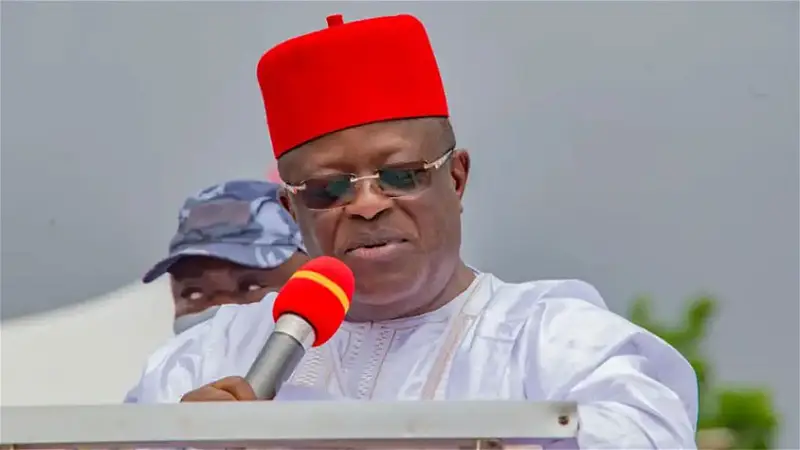Senator David Umahi, the Minister of Works, has emphasized the necessity of providing alternatives to highway toll gates. Speaking through his Special Adviser on Media, Orji Uchenna Orji, Umahi highlighted the legal requirement for offering alternative routes when tolling existing roads.
According to Umahi, “It is very important that every project must have alternative routes; by law, you cannot toll roads if there is no alternative route to it.”
The recent concession of 12 roads under the Highway Development Management Initiative (HDMI) during the last administration of President Muhammadu Buhari paved the way for tolling on these roads, aiming to enhance their commercial viability.
READ ALSO: Betta Edu: Nobody Is Above Been Investigated – EFCC Chairman, Olukoyede Warns
However, Umahi, during the inauguration of three committees to expedite HDMI implementation, clarified that the number of toll gates and stations would be determined by the Infrastructure Concession Regulatory Commission (ICRC). This decision-making process would involve using advanced technologies such as CCTV cameras, solar lighting, and enhanced road security.
“Whatever that will make our roads safer is very important to us. All these must be considered part of the business,” Umahi emphasized.
He urged the committees to work efficiently and collaboratively, considering the expectations of Nigerians regarding transparency, standards, and efficiency in contract negotiations.
While acknowledging that contracts with some concessionaires had been finalized, Umahi recognized the need for a review due to changing economic dynamics and the new policy direction of the present administration. The focus would be on ensuring that the scope of work and cost implications align with the current national objectives.
“We own the design; you will own the cost of the project while we carry out verification on the cost of the projects; the idea is to scope the projects. We want to have a standard road infrastructure to toll,” stated Umahi. The Committee on Scoping and Design, chaired by the ministry’s Director of Roads and Bridges, is crucial in ensuring that the design adheres to the ministry’s standards.










